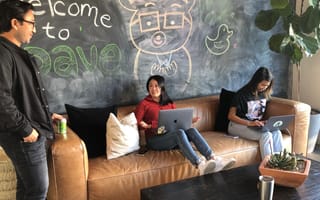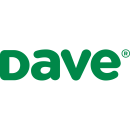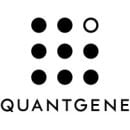It’s a good time to be a software engineer. According to the U.S. Bureau of Labor Statistics, the employment of computer software engineers is projected to grow 21 percent from 2018 to 2028. As well, the unemployment rate of software engineers is under 2 percent. Most engineers don’t need to go job-hunting, the offers come to them.
In order for companies to attract top engineering talent, creating a unique and engaging engineering culture is essential. According to Director of Engineering Marco Huerta of DISQO, “A good engineering culture rewards curiosity, promotes collaboration and encourages personal growth.”
Each company has their own way of promoting good engineering culture — and not all of them involve code. Whether it be a #running Slack channel, professional online training courses or karaoke, there are plenty of ways to sustain a unique engineering culture inside and out of the office. We caught up with eight local leaders who shared how they define good engineering culture and ensure their team feels challenged and engaged each and every day.

Chief Technology Officer Paras Chitrakar said that engineering culture starts at the hiring process; they look for candidates who fit in with their company values — like giving back to the L.A. community. Employees at Dave engage in the company mission by participating in volunteer and mentorship programs.
What makes a good engineering culture? What are the most impactful actions you’ve taken to improve your engineering culture?
We start by emphasizing our values in the hiring process. We hire people for their ‘values fit,’ rather than ‘culture fit.’ This has led us to hire a diverse group of people who are similarly motivated. The result is a team where each person feels comfortable bringing their unique interests and personalities to work.
We openly celebrate our team members’ interests by encouraging people to host events and get-togethers. We have a #chwu (come hang with us) channel in Slack where we share regular events like game nights and movie nights in the office. We also have a #running channel in Slack where fitness enthusiasts at the company challenge each other to run long distances and train for local races. Through our “One-Up Wednesday” breakfast series, we encourage the team to share their interests outside of work. The team has held sessions on boxing and music production, for example.
Dave is also a mission driven company, so we make sure the team has opportunities to give back to the L.A. community. Over the holidays, we hosted a gift drive in partnership with the International Rescue Committee to support local refugee families in Los Angeles. We also have a mentorship partnership with the St. Joseph Center’s Codetalk program, a coding bootcamp for women.
We openly celebrate our team members’ interests by encouraging people to host events.”
How do you ensure engineers continue to feel challenged, engaged and excited by the work they’re doing?
Creating an engaging work environment for the engineering team starts with prioritizing career development conversations. Everyone wants to grow their careers and be consistently challenged, so we make sure that our engineering managers have big-picture career conversations with their direct reports on a quarterly basis. For our junior engineers, that means that they feel supported as they grow in their careers through pair programming and mentorship.
We also create opportunities for team members to innovate and see the results of that innovation. For example, we held a hackathon at the end of 2019 that led to real roadmap decisions in 2020. It’s incredibly motivating to see your ideas brought to life, and it’s helpful from a business standpoint as well. Ensuring that everyone’s voice is represented in our decision-making process leads to better business decisions.
Finally, Dave’s mission-driven approach keeps the team excited. We have hundreds of users leave positive reviews for the app on a daily basis saying how much Dave has helped them. We highlight user stories in our weekly all-hands meeting and on Slack to keep our users top of mind for the team.
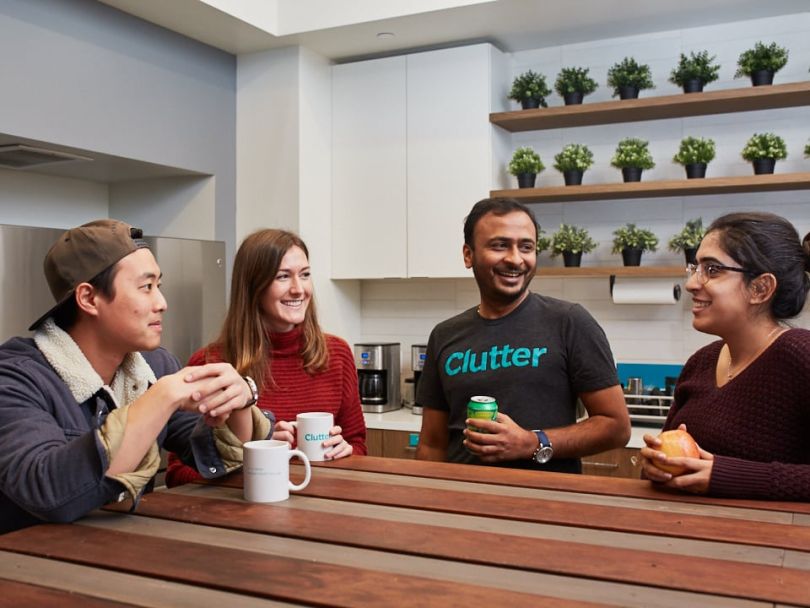
Director of Engineering, Pricing and Optimization Deergha Sahni said her team works together to solve problems by breaking down walls, developing a culture of listening and being open to challenging work. At Clutter, regular team outings like dinner and karaoke keep the engineering culture fun as well.
What makes a good engineering culture?
The more ownership that an engineer feels, the more leadership they demonstrate. We build more relevant features, at higher quality. We give engineers ownership of everything from code, data and features, to product and even strategy. Every single engineer feels leadership in their microcosm, and this ownership reflects in the quality of their work and the initiative they bring.
The hardest problems are solved by the smartest people working together, challenging each other to iterate the most robust solutions. For this you need to start breaking walls, developing a culture of listening and being open to being challenged.
The hardest problems are solved by the smartest people working together.”
How do you ensure engineers continue to feel challenged, engaged and excited by the work they’re doing?
Start by creating incentive systems where the company’s and the individual’s incentives are aligned. We spend a lot of time talking about the business, giving engineers context on finance, marketing, supply chain and overall metrics and scorecards. Clutter internally uses scorecards to track and hold ourselves to targets for input and output metrics such as ARPU, CAC, cost, payback, etc. These metrics are shared at a cadence across the company and the engineering department.
We use OKRs to get engineers thinking about their work in the context of the business. For example, they ask how a feature can improve CAC — a metric that directly impacts our unit economics. OKRs are inherently competitive and a good north star while making decisions and prioritizing. We also do a quarterly hackathon that allows engineers to flex their creative muscles and cross-pollinate.
Regular team events outside the office, both formal and informal, are important. This includes everything from casual drinks and dinner to karaoke. I also lean on humor, especially when we’re moving fast to hit a deadline under pressure. Hard work doesn’t have to be hard, and it’s fun if you chose to make it so.

In order to challenge his engineers, Director of Engineering Marco Huerta starts by asking them about what they want in terms of professional development. At DISQO, he strives to provide a safe space where individuals feel valued and coworkers treat each other with respect.
What makes a good engineering culture?
A good engineering culture rewards curiosity, promotes collaboration and encourages personal growth. As engineers, we thrive when presented with ever-increasing challenges both human and technical. When presented with these challenges, success — and even failure — is seen as a valuable learning experience. It’s all in the name of improving our craft and striving for engineering excellence.
Removing blame from all conversations allows us to focus on solutions, squelching anxiety and fear in the process. We measure team sentiment on a weekly basis and actively seek solutions to address issues the team surfaces. More importantly, we are honest about what we can and cannot do to address an issue, and we are not embarrassed to admit that, as managers, we may not have all of the answers.
Removing blame from all conversations allows us to focus on solutions.”
How do you ensure engineers continue to feel challenged, engaged and excited by the work they’re doing?
By asking. Nobody can make an engineer feel more challenged, engaged, or excited about their work than the engineer. What we can do is provide a safe environment where individuals feel valued, contributions are acknowledged and sincerity is our compass.

CTO Tarun Malhotra acknowledges that employee burnout is real. In order to keep his engineering team engaged, he creates a work environment that is conducive to focus and collaboration. At InStride, Malhotra said engineers feel connected to the company mission of providing career-shifting learning opportunities to employers nationwide.
What makes a good engineering culture?
A good engineering culture starts with bringing smart, passionate people together who are driven to get things done. What takes an engineering culture from good to great is when it’s built around trust, empowerment, transparency, recognition, learning and balance. We’ve been intentional about cultivating these key values at InStride from the beginning. This has included empowering people at all levels to do what’s best for their team, hiring people with different experiences to give them the opportunity to mentor and be mentored and holding weekly all-hands meetings to share the latest information.
We’ve also been conscious about creating opportunities for people to be challenged, to innovate and solve real business problems, whether it be on the job by participating in hackathons, or by taking advantage of the formal university degree programs that we offer at no cost.
Burnout is real, so we also make sure to have a sustainable approach to working hard. This includes removing impediments and creating a work environment that is conducive to focus and collaboration.
Burnout is real, so we make sure to have a sustainable approach to working hard.”
How do you ensure engineers continue to feel challenged, engaged and excited by the work they’re doing?
Our engineers chose to join because of the ability to work for a cause they genuinely care about. At InStride, we’re making a difference in the future education of thousands of learners. Feeling connected to this purpose is important for staying energized and motivated.
The benefit of being part of a newer company is that we can pivot quickly and keep up with emerging technologies. We’re constantly raising the bar on the best practices we follow and the quality of our platform. Whether we’re making our platform scalable and configurable for our customers, using machine learning models to optimize the experience for our learners, building a global privacy and security architecture, or automating internal processes, all of these activities ensure our engineers stay challenged and engaged.

The engineering team at Quantgene consider themselves pioneers of ‘reality engineering.’ Chief of Staff Felix Huettenbach said they keep engineers excited about the company’s mission of saving lives through early cancer detection with radical ownership. When one person owns finding the solution to a complex problem, the team can follow a clear path.
What makes a good engineering culture?
At Quantgene, we consider everyone on the team to be a pioneer in reality engineering, from marketing to data science. We believe that no challenge is too big. Every goal is a combination of smaller challenges that can be tackled systematically using first principles. That means breaking down a hypothesis into its most basic components and building a path forward from there. This will result in the leanest and most impactful output.
We have looked at novel ways to connect with the right people who are uniquely suited to this approach. From collaborating with other startup founders to building our pioneer academy pipeline, we are committed to finding people who are not afraid to tackle big challenges.
We encourage radical ownership.”
How do you ensure engineers continue to feel challenged, engaged and excited by the work they’re doing?
It’s important that we don’t limit our reality engineering mindset to just engineers. Keeping our entire staff engaged and excited is crucial for our mission of saving lives through early cancer detection.
That’s why we encourage radical ownership. We believe that the most complex problems can only be solved if each person owns the solution to the problem. To forge ahead in this mission, we follow a model of imagine, build, learn, repeat, progress. It is about trying, learning and optimizing. We encourage everyone at Quantgene to put their best thinking forward and allow them the freedom to test their best ideas.
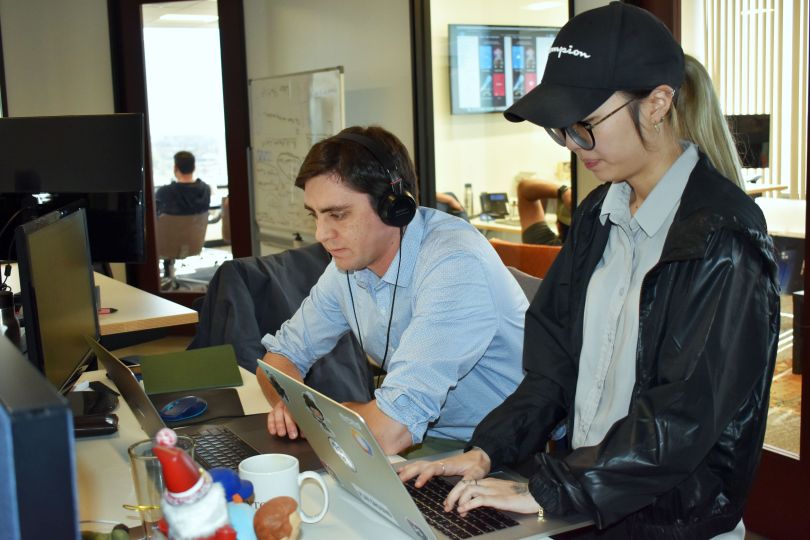
Premesh Purayil, CTO, said it’s important to increase employee education, even after they’re hired. Engineers are encouraged to move around teams and if they’re interested in expanding their areas of expertise, Ranker will provide the necessary training to create long-term employee retention.
What makes a good engineering culture?
From a cultural standpoint at Ranker, we've incorporated several ways to improve our engineering department by inspiring a collaborative, open-quorum environment, including a focus on improving employee technical education. For example, once a new hire gets ramped up on our stack, we encourage them to start looking at what areas they can improve that may have a real product benefit — uniquely positioning them to help identify any outdated tech that isn't well supported and make decisions to further build-out and modernize our IP where we can.
We believe in offering engineers the opportunity to learn things that otherwise might be outside their wheelhouse.”
How do you ensure engineers continue to feel challenged, engaged and excited by the work they’re doing?
We are continually evolving, which creates opportunities for engineers to move around between teams. If there's an engineer that would like to expand from one team to another in order to learn more, we will take the time to provide that person with the necessary training because we value that person as an employee and prefer to keep staff on for the long-term. We truly believe in offering engineers the opportunity to grow and learn things that otherwise might be outside their wheelhouse.

Ashit Joshi, CTO at fintech company Altruist, said weekly one-on-ones with managers ensure engineers know where they stand and where gaps exist. Fast feedback helps engineers to know whether they are successful in their roles and course-correct when necessary. Joshi said they look for diverse hires who have different backgrounds in order to bring new insights to problems and solutions.
What makes a good engineering culture?
We believe a good engineering culture is innovative, inclusive and provides an environment of open communication. At Altruist, we encourage team members to share new ideas or technologies that can help solve an existing problem or will bring value to our broader business objectives. Each team member has a weekly one-on-one with their manager and we advocate for a culture of fast feedback so engineers always know where they stand, and where gaps may exist so we can quickly course correct. This process helps ensure Altruist team members are successful in their roles.
We also believe in hiring a diverse group of people with a wide range of backgrounds who will bring new insights that can help us look at problems from new angles. Lastly, we make it a point to lay out clear career paths that engineers can follow and strive for based on their merits.
We believe in hiring a diverse group of people.”
How do you ensure engineers continue to feel challenged, engaged and excited by the work they’re doing?
Engineers love solving problems. It's important to maintain a balance between assigning work that may be repetitive and providing work that offers complex problems to solve that help sharpen their skill sets. We provide team members an opportunity to grow in their careers as they build technical expertise and mentor more junior engineers. By setting challenging, but attainable goals for our team, we help engineers feel good about coming into work.
Altruist also regularly communicates our mission so that employees feel empowered to do their best work and help us make a big and meaningful impact in the world. Finally, our interview process is exhaustive and detailed to help make sure each member is a great culture fit so that they're set up for success on day one.

At adtech company Ace Metrix, company culture is innovation-oriented. William Parducci, CTP and CPO, said each department has its own subculture and operates in a way that’s best for them. For the engineering team, there are ample opportunities to learn new languages and frameworks.
What makes a good engineering culture?
I don’t think there is a one-size-fits-all engineering culture that can be considered the ‘best’ for every team. This is one of the reasons we are set up by small functional teams that are operationally defined by the team leads working with the members. The natural technology, tempo and agility between, say, our UI/UX team and back-end services teams are entirely different. By giving each team it’s own subculture, they are allowed to operate in a way that best suits them. Our overall culture focuses on the interactions between teams, which aligns with the functional aspect each team represents.
I don’t think there is a one-size-fits-all engineering culture that can be considered the ‘best’ for every team.”
How do you ensure engineers continue to feel challenged, engaged and excited by the work they’re doing?
Fortunately, our company culture is innovation-oriented, which translates into a perpetual cycle of looking for new things to measure, analyze and continuously improve how we represent the results. Because each team controls the technologies used, there are many opportunities to not only learn new languages and frameworks, but also to regularly explore what’s new in the field. Finally, our teams have some fun throughout the year building things that are not software-related. For example our jack-o-lantern contest allows our teams to show off their special skills in some friendly competition.
